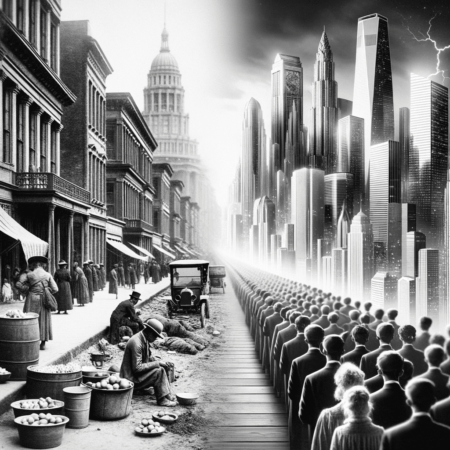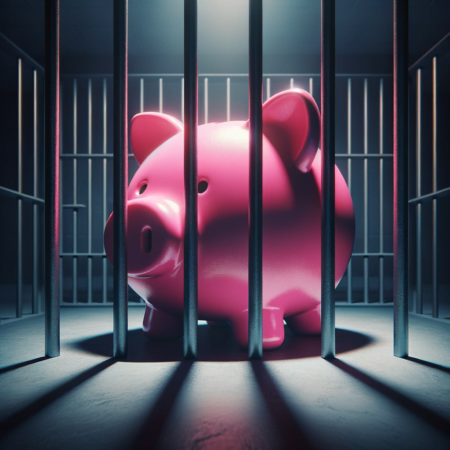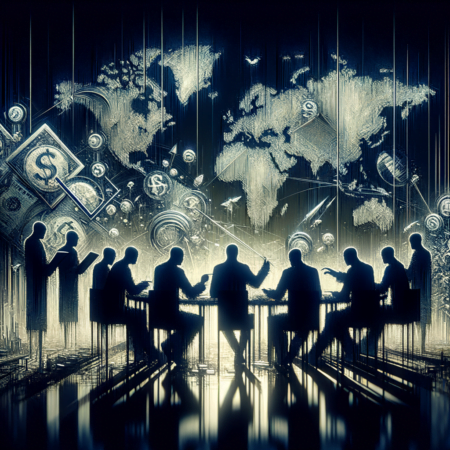Questioning the Foundations of Our Financial System
In recent years, our understanding of the world has been shaken by the pandemic, conflicts, corruption, and the unsettling realization that things are not as they seem. Just as inflation silently and considerably ate away our wealth and spending power. As a freedom seeker, I’ve been inspired to closely examine the assumptions underlying our economic and financial structures.
I was inspired to write this post after watching the documentary “The Great Taking” by David Rogers Webb. Both the documentary and the book of the same name offer a thought-provoking perspective on the global financial system. They delve into the inner workings of the system, challenging the notion that our assets and wealth are not as secure as we’ve been led to believe.
If the insights presented in “The Great Taking” film are accurate, the implications could be far-reaching, potentially undermining our very understanding of asset ownership, wealth preservation, and economic stability. Whether you are poor, rich, or middle class, it can affect us and the world we live in. It’s time we buckle up and take a closer look at what this work has to reveal about the foundations of our financial system.
The Shocking Claims of “The Great Taking”

Have you ever wondered why the global financial system seems so prone to repeated crises? Just over a decade after the 2008 crash, many now fear we are heading towards another even bigger financial meltdown. Potentially even economic catastrophe similar to the Great Depression of the 1930’s.
But what if the next crisis is not some cyclical accident, but rather a controlled demolition engineered by powerful financial interests to privatize the world’s wealth on an unprecedented scale? This is the provocative claim made by the author in “The Great Taking”. Yet, I would not undermine the existence of economic cycles and fall into the conspiracy trap.
The film features David Webb, a former hedge fund manager who says he stumbled across evidence of a decades-long plan to restructure the global financial system in a way that will allow the largest banks and their owners to legally take possession of assets like real estate, stocks, bonds, and more during the next crash. Educated in fiances and computer science, he started his career in computer services firms serving the financial sector.
Dematerialization and the Erosion of Asset Ownership
At the heart of Webb’s claims are a series of legal machinations that he says have radically transformed the nature of ownership over financial assets like stocks and bonds. The growing importance of “security entitlement” – where ownership is defined by electronic records rather than physical certificates – has transformed the nature of asset ownership and risk in the financial system.

Further, through changes to laws like the Uniform Commercial Code in the United States, he argues that individual investors, pension funds, and corporations no longer truly own their financial assets outright. They are assumed owners of instruments that are collateral on another institution’s book via a complex derivative market.
Instead, these assets are held in fungible pooled form by intermediaries and clearing houses. In that way, the official legal ownership and control remains within a small group of major banks designated as “secured creditors.” Individual investors essentially just have an unstable “entitlement” that can be obliterated in the next crisis. In other words, investors become the “register keeper” of such a financial instrument, rather than the owner of it.
Webb cites the Lehman Brothers (LB) bankruptcy case as an example of how “secured creditors,” such as JP Morgan Chase, can seize and keep a bankrupt company’s assets, even if those assets belong to the LB’s clients. Back in the time, this would have been considered outright fraud. The ruling in this case set a legal precedent, establishing the absolute priority of “secured creditors” over the “entitlements” of clients – the assumed owners of assets held by LB.
The Coming “Great Deflation” and Wealth Transfer
According to Webb, the entire system is being deliberately set up to pass on collaterals at fail. He lists numerous exercises i.e. the “wind-down solvency”, run by financial institutions to ensure smooth collateral collection in case of a downturn.
Once the next crash hits and over-indebted assets cannot be paid, the secured creditor can legally confiscate the real assets like stocks, real estate, and physical commodities underpinning the unplayable debts.
In essence, Webb argues the groundwork is being laid for the largest wealth transfer and corporate ownership consolidation in history. A small group of privately owned financial giants could end up controlling the core economic resources of entire nations. The current system of democratic governance and capital markets could be rendered largely meaningless.
Navigating the Future with Awareness

Of course, Webb’s claims raise all kinds of disturbing questions. Obviously, he goes to a greater extent to connect the dots on how the Clearing Houses and other prominent financial institutions have been paved and adjusted through decades of changes. He explains how the web of the Central Clearing Parties, International Central Securities Depository, and Depository Trust & Clearing Corporation are working together, but this is beyond the scope of this article.
If true, it would mean the very foundations of modern capitalism and democracy have been undermined by a financial system redesign, that only a few are aware of. It implies a level of forethought, planning, and coordination at the highest levels that seems almost unfathomable.
Yet in an era of unprecedented money printing, negative interest rates, “elite” institutions repeatedly caught in corruption scandals, and economies seemingly held together by ever-larger asset bubbles. It’s becoming increasingly difficult to dismiss such claims as absurd. After all, the larger the bubble, the less stable it is. There’s something very systemically wrong with the current paradigm.
So, What Can We Do About It?
While the mechanisms described by Webb may seem daunting, it’s important to remember that all is not doom and gloom. Here are some steps you can take to protect your assets, yourself and your family:
- Spread the word: Hold policymakers accountable by spreading awareness about these issues. By staying informed and speaking out, you can help to reverse and correct these adjustments.
- Deleverage: Consider paying off unnecessary loans to reduce your exposure to the financial system and its products.
- Diversify your portfolio: If you are invested in financial assets, consider diversifying your portfolio by moving a portion of your wealth into real assets, such as small businesses, land or property, or precious metals.
- Build local economic networks: By supporting small businesses, community-based initiatives, and alternative economic models, individuals can create a buffer against macroeconomic disruptions and bolster their economic security beyond relying on the volatile global financial system.
By taking these steps, you can protect yourself and your assets from the risks associated with the current financial paradigm.
Final Thoughts on Financial Preparedness
Whether you ultimately find Webb’s specific narrative convincing or not, “The Great Taking” is a must-watch documentary for anyone concerned about the future of finance, or at least holds a private pension or other type of financial assets. Because the nature of wealth and presumed asset ownership is not as it seems. At the very least, it poses substantive questions that arguably need clearer answers from policymakers and regulators.
In a world of increasing uncertainty, inequality, and pessimism about the future, Webb’s research suggests we may all soon be forced to confront the true decision-making structures and motivations undergirding our global financial and political systems. The resulting picture is one few may find comforting or acceptable.
For those looking to explore these issues further, I recommend Webb’s book, “The Great Taking,” which expands on the evidence presented in the documentary. The book is available for free online at thegreatreading.com.
Love it or hate it, after only watching the documentary, I placed it on my reading list! The implications raised there, are so significant that none of us can afford to ignore them any longer.
“Are you skeptical, or is it better to be safe than sorry? Share your thoughts on the topic!”

